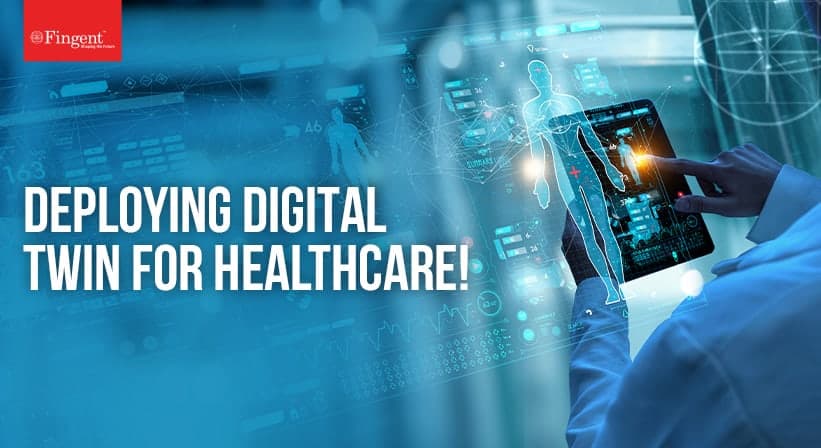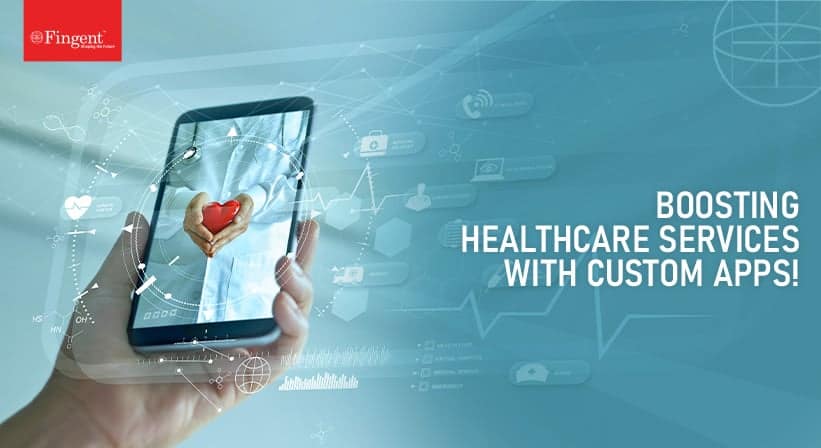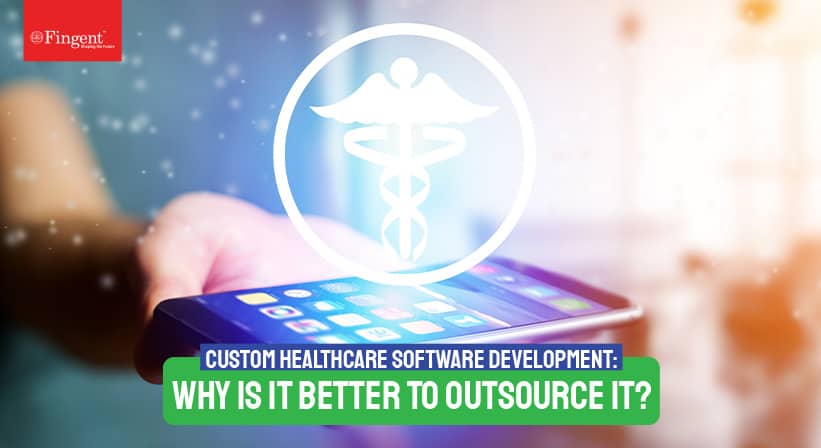How Modern Healthcare is Being Revolutionized with Automation
Automatic control, which has been the foundation of automation, has been here for centuries. As far back as the 17th century, systems with automatic control devised for the regulation of steam engines, temperature control, and other applications. Automation has come a long way since then. Its application in the Health care sector that has been especially noteworthy since it has made huge strides in saving costs, labor, and lives! This blog will have an in-depth into how automation is revolutionizing the health care sector.
The Healthcare Industry – An Overview
Before we get into the role automation has played in the healthcare sector, it makes sense to have an overview of how the Healthcare Industry has been doing. Innovation and R&D in the past few decades have contributed to more effective medicines, improved diagnostic aids, and technological solutions to non-invasive procedures. These are naming just a few of the accomplishments in the healthcare industry.
Along with the accomplishments, there have been a few challenges as well. The availability of quality and affordable healthcare for its people is an important indicator of how well a nation fares on the Human Development Index (HDI). The problem is that even developed countries are struggling to meet this need effectively. There are many reasons for this and here are a few of them.
1) Rising Expenditures
There are huge investments being made in the healthcare sector in terms of funding drug discovery and providing facilities. This often translates into enormous hospital bills, which reaches down to patients.
A Research Gate study showed that supply expense per patient admission in the US was estimated to be $4,470! The disproportionate constraint of health insurance reimbursements makes the problem worse. The growing demand for procedures requiring medical devices is a further strain on the pockets of health care providers. For example, the National Center for Health Statistics (NCHS) predicts that the number of knee replacements will expand by 673% by the year 2030. Identifying R&D opportunities for drug discovery also involves large expenses and involves several data assimilation and regulatory challenges. Large volumes of data and insights are involved, and this expends time and cost.
Balancing costs and health outcomes require an intelligent assessment by formulary committees, which takes into consideration numerous data variables.
2) Appointment Scheduling
A survey of nearly 500 healthcare professionals on the Top Challenges for Medical Practices showed that lost revenue from broken appointments was the top challenge with 49.5% respondents voting for this. Other challenges included:
- Low response to recall efforts
- Not enough staff time to call patients
- Keeping updated patient contact information
- Lack of an efficient way to reach patients via text message
- Not connecting with enough patients with a reminder phone call
3) Security
Patients entrust private information to health care providers, including social security numbers and financial details. The theft of such data could be catastrophic, to say the least. Reports show that the highest data breach resolution costs in the United States are for healthcare data breaches, which typically cost an average of $408 per record. The time taken to identify and contain a breach includes significant losses. Above all, the loss of trust and reputation with customers could deal a fatal blow to health care providers.
What is Data Automation
Automation is when manual tasks are reduced by the use of information technology. Repetitive tasks that require least human intervention benefit the most from automation. Data automation is the process when programming takes care of the assimilation, storage, and analysis of data.
Data automation usually involves:
- Extraction: Multiple open data sources are mined for relevant information.
- Transformation: The data is converted into a format that can be used by machines.
- Loading: The data is then fed into the system to serve as the raw material for automation.
Big Data Automation (BDA), is a broad concept that makes use of innovation and IT resources to create value. A few aspects of Big Data automation were brought out in a whitepaper by WhereScape. The WP has Barry Devlin describing Big Data automation as follows:
In addition to reducing manual labor in the collection and analysis of data, automation can help reduce administrative workloads and improve patient care on many levels. Robotic Process Automation (RPA) is the next level in automation. This uses machine learning and AI to effectively handle tasks that are done manually. RPA has made huge strides in Healthcare. A Deloitte article entitled “RPA in Health Care Can Improve Outcomes for All “puts it well: ‘RPA can help health care and life sciences organizations collect and translate patient and transactional data into meaningful, actionable formats; streamline compliance-related processes; and relieve employees of some tasks they now perform.’ Here are some ways in which automation is revolutionizing the healthcare industry: As we discussed earlier, a major cause of rising healthcare costs is the growing demand for medical devices and the innovation costs involved in drug discovery. Automation can greatly aid in this. Recently, FDA Commissioner Scott Gottlieb revealed a budget action plan, which focused on modernizing drug and device production and using innovation to minimize costs and advance public health priorities. Some of the highlights were to enlist “as many as 10 million electronic medical records to speed the regulator’s ability to address emerging safety concerns for drugs, biologics and medical devices.” This would help in fast-tracking the assessment of safety and effectiveness of the drugs and devices. The collection and analysis of data would also support drug discovery and new product functions. Consider the savings in cost and time if tasks like scheduling appointments and reminders would be automated. Apps that automate these tasks have freed up valuable staff and resources allowing them to concentrate on patient care. Some features that these apps make possible: A manual error is often the cause for most security breaches. By automating data processing and sharing, healthcare companies can ensure that handling of data by humans is minimized. With the help of AI and automation, healthcare providers can enable alerts, monitoring, and prioritization of abnormal behavior. Predictive analysis, diagnosis, and recommendations can also be automated ensuring that the system continuously learns to detect and eliminate security vulnerabilities. While we considered just three challenges and the ways in which automation is helping to resolve these challenges, there are many more. Fingent works with various clients in the healthcare sector to design customized applications to help automate their critical processes. Drop us a message to learn how we can help. How Automation Is Revolutionizing Health Care Sector
1) Solving Rising Costs
2) Appointment Scheduling Solutions
3) Security Solutions
Stay up to date on what's new

Recommended Posts

16 Mar 2022 B2B
Maximizing Business Potential with Process Automation and Visualization!
Businesses are always on the lookout for ways to optimize processes and gain greater visualization. When processes work efficiently, the output of the product is higher. This leads to workflows……

16 Feb 2022 Healthcare
Is Digital Twin Promising A New Era for Healthcare?
Over the next three years, 66% of healthcare executives are planning to increase their investment in digital twin, states a recent digital health technology report. Since the outbreak of the……

10 Feb 2022 Healthcare B2B
How Can Custom-Made Software Provide Superior Customer Service In The Healthcare Industry?
Healthcare is a vast customer service industry that is trying to improve patient health and healthcare processes. This patient-centric approach has evolved, especially after the COVID-19 pandemic. Virtual consultations and……

13 Oct 2021
Custom Healthcare Software Development: Why Is It Better To Outsource It?
With the ongoing COVID-19 pandemic, the healthcare industry is spiraling at an unexpected speed and is continuously inventing healthcare solutions to drive streamlined operations. Medical organizations are now largely depending……
Featured Blogs
Stay up to date on
what's new













